
Ai Unleashed: Revolutionizing Weight Management Is AI your best bet for a smart and effective way to manage your weight and improve your health? Do you want to learn how AI can help you achieve your weight goals with personalized, adaptive, and interactive solutions? If so, you are in the right place.
In this post, you will discover how artificial intelligence is revolutionizing weight management by providing you with customized, data-driven, and evidence-based recommendations on nutrition, diet, exercise, and lifestyle. You will also find out how AI can help you adopt mindful and intermittent eating practices for long-term weight maintenance. Read on to find out how these 7 revolutionary AI concepts can transform your weight-management journey and make it easier, faster, and more enjoyable.
Table of Contents
What is weight management, and why is it important?

Weight management is the process of maintaining a healthy weight that reduces the risk of chronic diseases and improves the quality of life. It involves balancing the calories you consume from food and beverages with the calories you burn from physical activity and metabolism. Weight management is important for your physical, mental, and environmental health, as it can have various benefits and prevent various problems.
Some of the benefits of weight management for your physical health are:
- Lowering your blood pressure, cholesterol, and blood sugar levels can reduce your risk of heart disease, stroke, diabetes, and some cancers
- Improving your mobility, flexibility, and strength can prevent injuries, falls, and joint pain
- Enhancing your immune system, which can protect you from infections and diseases,
Some of the benefits of weight management for your mental health are:
- Boosting your self-esteem, confidence, and mood can improve your relationships, work, and social life
- Reducing your stress, anxiety, and depression, which can improve your coping skills, resilience, and happiness
- Increasing your cognitive function, memory, and creativity can improve your learning, problem-solving, and productivity
However, weight management is not easy, and it can face various challenges and barriers, such as:
- Obesity, which is a global epidemic that affects more than 650 million adults and 340 million children and adolescents and is associated with increased mortality and morbidity
- Lifestyle, which is influenced by factors such as diet, physical activity, sleep, stress, and smoking, can affect your weight and health
- environment, which is shaped by factors such as culture, media, social norms, and policies, can affect your weight and health

Therefore, weight management is a complex and multifaceted process that requires individual and collective efforts, as well as personal and social support. By managing your weight in a healthy and sustainable way, you can enjoy the benefits of weight management for your physical, mental, and environmental health.
AI, or artificial intelligence, is the use of machines and algorithms to perform tasks that normally require human intelligence, such as learning, reasoning, and decision-making. AI can help you achieve your weight goals by providing personalized, adaptive, and interactive solutions that can enhance your motivation, behavior, and outcomes.
Personalized solutions are those that are tailored to your individual needs, preferences, and goals. AI can analyze your data, such as your age, gender, weight, height, activity level, health status, and genetic profile, and provide you with customized feedback and recommendations on your diet, nutrition, exercise, and lifestyle. For example, artificial intelligence can suggest the best foods, portions, and timing for your meals based on your calorie needs, metabolism, and preferences. AI can also recommend the best exercises, durations, and intensities for your workouts, based on your fitness level, goals, and preferences.
Adaptive solutions are those that can adjust to your changing conditions, progress, and feedback. AI can monitor your data, such as your weight, body fat, blood pressure, blood sugar, and biomarkers, and provide you with dynamic feedback and recommendations that can suit your current situation and goals. For example, AI can adjust your calorie intake and expenditure based on your weight loss or gain and your health status. Artificial intelligence, can also modify your exercise plan based on your performance, feedback, and goals.
Interactive solutions are those that can communicate with you and engage you in a meaningful way. Artificial intelligence can use natural language processing, speech recognition, and computer vision to understand your voice, text, and gestures and provide you with conversational and visual feedback and recommendations. For example, AI can use chatbots, virtual coaches, or avatars to motivate you, guide you, and support you throughout your weight-management journey. AI can also use gamification, social media, or rewards to make your weight-management experience more fun, social, and rewarding.
AI Unleashed: Applications that can help you with weight management are:
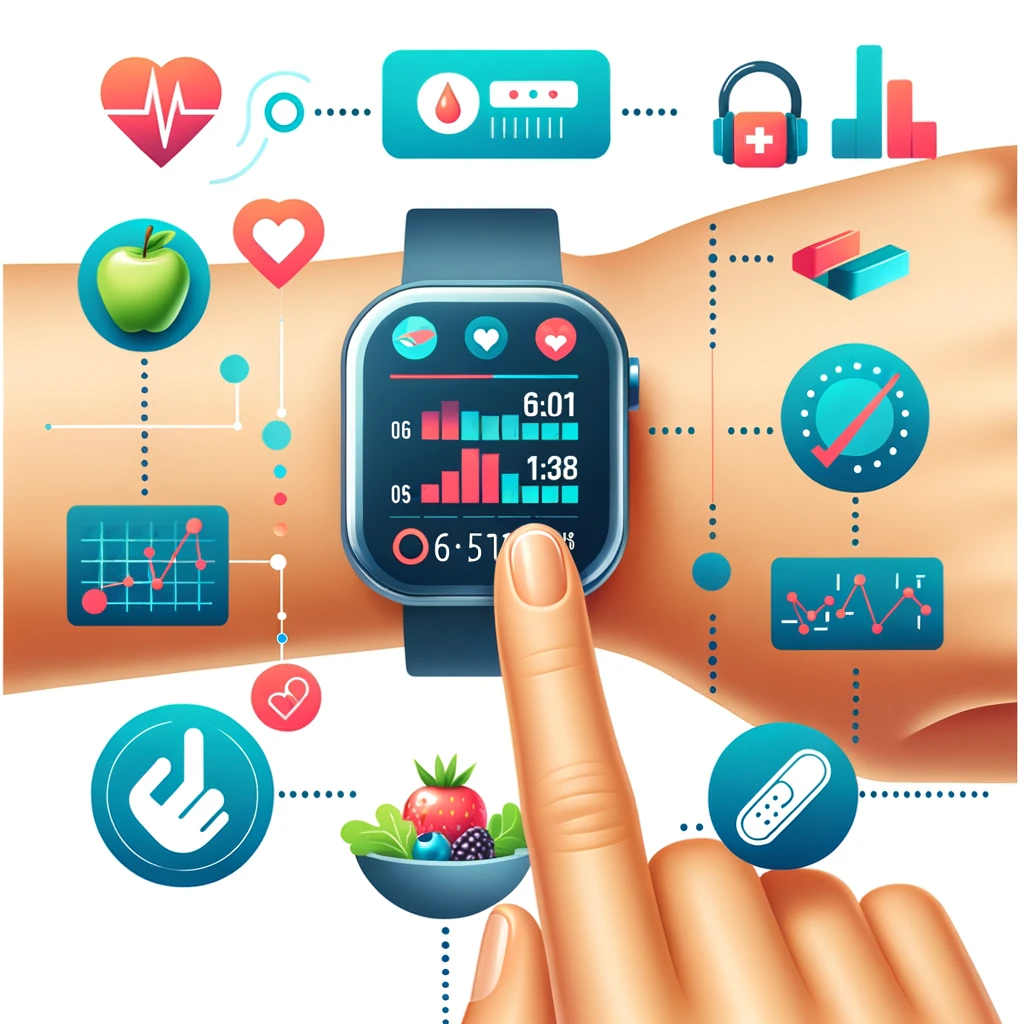
- Chatbots: These are software programs that can simulate human conversations and provide you with personalized, adaptive, and interactive feedback and recommendations on your weight management. For example, Lark is a chatbot that can act as your personal health coach and help you with your diet, exercise, and lifestyle.
- Virtual coaches: These are software programs that can use voice, text, or images to provide you with personalized, adaptive, and interactive feedback and recommendations on your weight management. For example, Noom is a virtual coach that can help you set and achieve your weight goals and provide you with daily lessons, tips, and challenges.
- Smart scales: These are devices that can measure your weight, body fat, muscle mass, and other metrics and provide you with personalized, adaptive, and interactive feedback and recommendations on your weight management. For example, the Fitbit Aria is a smart scale that can sync with your Fitbit app and dashboard and help you track your weight, body fat, BMI, and trends.
- Wearable devices: These are devices that can be worn on your body, such as wristbands, watches, or rings, and provide you with personalized, adaptive, and interactive feedback and recommendations on your weight management. For example, Fitbit Charge is a wearable device that can track your steps, calories, heart rate, sleep, and other metrics and help you monitor your activity, exercise, and health.
The advantages and opportunities of AI for weight management are:
- Convenience: AI can provide you with easy and accessible solutions that can fit your schedule, budget, and lifestyle. You can use AI anytime, anywhere, and on any device, and get instant and accurate feedback and recommendations.
- Accessibility: Artificial intelligence can provide you with affordable and scalable solutions that can reach more people and regions. You can use artificial intelligence without the need for expensive or scarce resources, such as doctors, nutritionists, trainers, or facilities.
- Effectiveness: AI can provide you with evidence-based and data-driven solutions that can improve your results and outcomes. You can use artificial intelligence to optimize your weight management and health and achieve your goals faster and easier.
How AI Can Help You Achieve Your Weight Goals
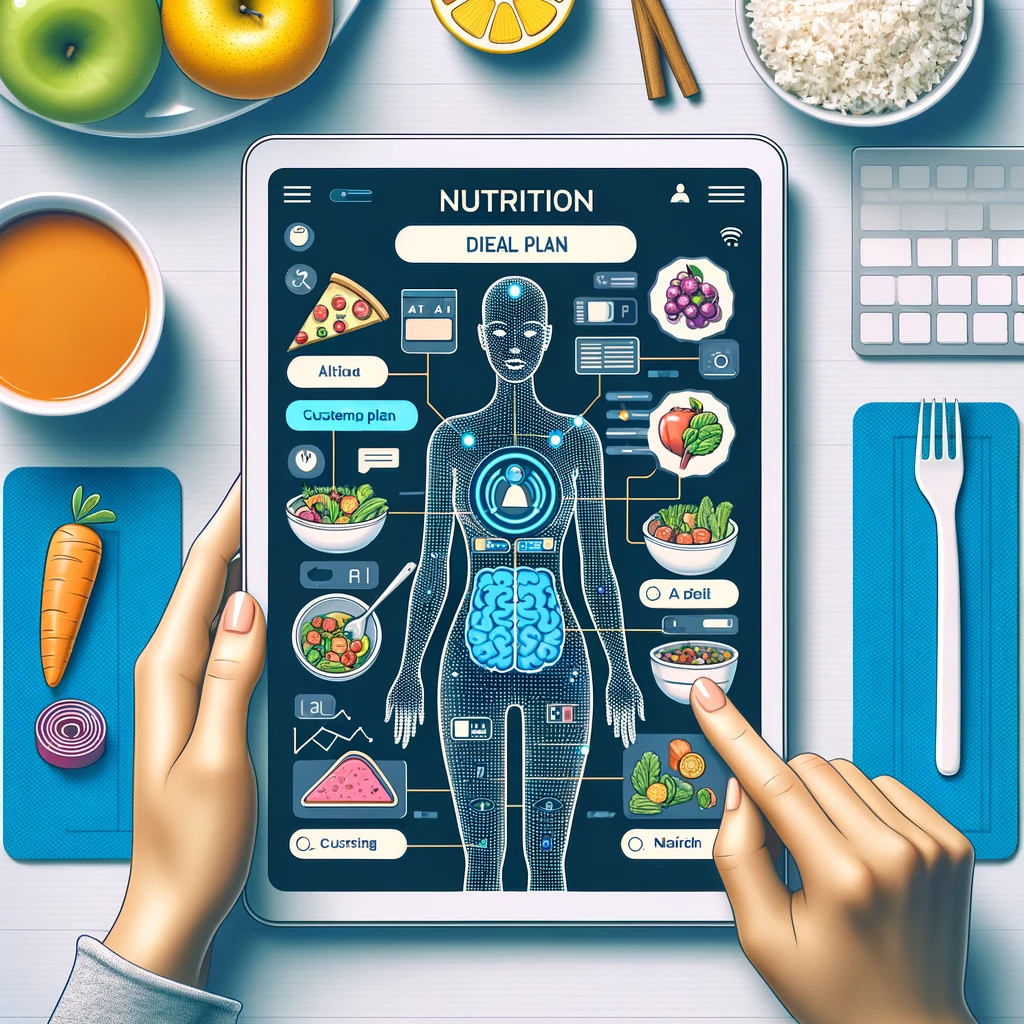
Artificial intelligence is the use of machines and algorithms to perform tasks that normally require human intelligence, such as learning, reasoning, and decision-making. Artificial intelligence can help you achieve your weight goals by providing personalized, adaptive, and interactive solutions that can enhance your motivation, behavior, and outcomes.
Personalized solutions are those that are tailored to your individual needs, preferences, and goals. AI can analyze your data, such as your age, gender, weight, height, activity level, health status, and genetic profile, and provide you with customized feedback and recommendations on your diet, nutrition, exercise, and lifestyle. For example, AI can suggest the best foods, portions, and timing for your meals based on your calorie needs, metabolism, and preferences. The technology can also recommend the best exercises, durations, and intensities for your workouts, based on your fitness level, goals, and preferences.
Adaptive solutions are those that can adjust to your changing conditions, progress, and feedback. AI can monitor your data, such as your weight, body fat, blood pressure, blood sugar, and biomarkers, and provide you with dynamic feedback and recommendations that can suit your current situation and goals. For example, AI can adjust your calorie intake and expenditure based on your weight loss or gain and your health status. AI can also modify your exercise plan based on your performance, feedback, and goals.
Interactive solutions are those that can communicate with you and engage you in a meaningful way. AI can use natural language processing, speech recognition, and computer vision to understand your voice, text, and gestures and provide you with conversational and visual feedback and recommendations. For example, AI can use chatbots, virtual coaches, or avatars to motivate you, guide you, and support you throughout your weight-management journey. Artificial intelligence (AI can also use gamification, social media, or rewards to make your weight-management experience more fun, social, and rewarding.
Some examples of AI applications that can help you with weight management are:
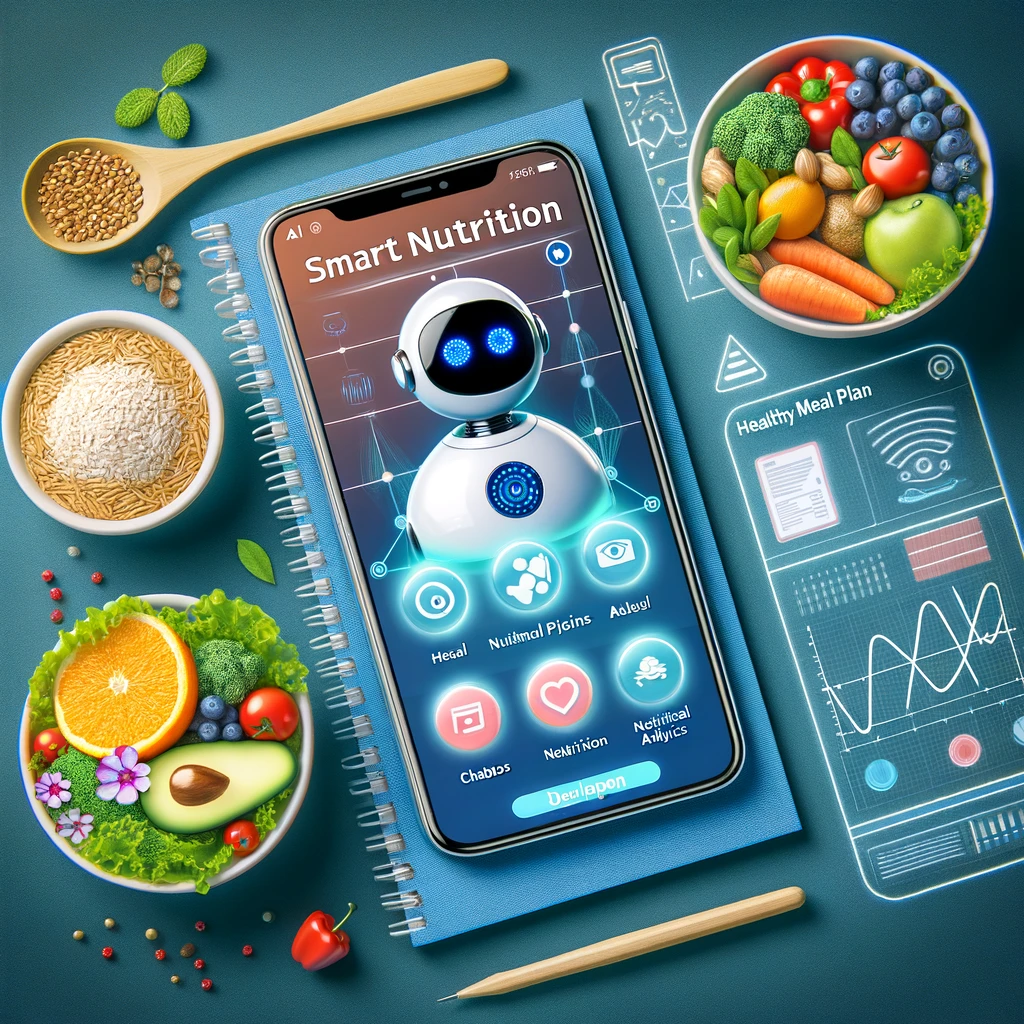
- Chatbots: These are software programs that can simulate human conversations and provide you with personalized, adaptive, and interactive feedback and recommendations on your weight management. For example, Lark is a chatbot that can act as your personal health coach and help you with your diet, exercise, and lifestyle.
- Virtual coaches: These are software programs that can use voice, text, or images to provide you with personalized, adaptive, and interactive feedback and recommendations on your weight management. For example, Noom is a virtual coach that can help you set and achieve your weight goals and provide you with daily lessons, tips, and challenges.
- Smart scales: These are devices that can measure your weight, body fat, muscle mass, and other metrics and provide you with personalized, adaptive, and interactive feedback and recommendations on your weight management. For example, the Fitbit Aria is a smart scale that can sync with your Fitbit app and dashboard and help you track your weight, body fat, BMI, and trends.
- Wearable devices: These are devices that can be worn on your body, such as wristbands, watches, or rings, and provide you with personalized, adaptive, and interactive feedback and recommendations on your weight management. For example, Fitbit Charge is a wearable device that can track your steps, calories, heart rate, sleep, and other metrics and help you monitor your activity, exercise, and health.
The advantages and opportunities of AI for weight management are:

- Convenience: easy and accessible solutions that can fit your schedule, budget, and lifestyle. You can use AI anytime, anywhere, and on any device, and get instant and accurate feedback and recommendations.
- Accessibility: AI can provide you with affordable and scalable solutions that can reach more people and regions. You can use AI without the need for expensive or scarce resources, such as doctors, nutritionists, trainers, or facilities.
- Effectiveness: AI can provide you with evidence-based and data-driven solutions that can improve your results and outcomes. You can use AI to optimize your weight management and health and achieve your goals faster and easier.
How AI Can Enhance Your Nutrition and Diet for Weight-Management
Nutrition and diet play a crucial role in weight management, as they can affect your calorie intake, metabolism, and health. The quality and quantity of the food you eat can determine how much energy you consume and burn, how well your body functions, and how you feel. However, nutrition and diet are not simple or straightforward, as they can vary depending on your individual factors, such as your age, gender, weight, height, activity level, health status, and genetic profile. That’s why AI can be a powerful ally in enhancing your nutrition and diet for weight management.
AI, or artificial intelligence, is the use of machines and algorithms to perform tasks that normally require human intelligence, such as learning, reasoning, and decision-making. AI can enhance your nutrition and diet for weight management by providing you with customized, data-driven, and evidence-based recommendations that can suit your needs, preferences, and goals.
AI can analyze your data, such as your food intake, calorie expenditure, weight change, biomarkers, and genetic profile, and provide you with personalized feedback and suggestions on what, when, and how much to eat. AI can also help you monitor and track your nutrition and diet and provide you with real-time and long-term insights on your progress and outcomes.
Some examples of AI tools that can enhance your nutrition and diet for weight management are:
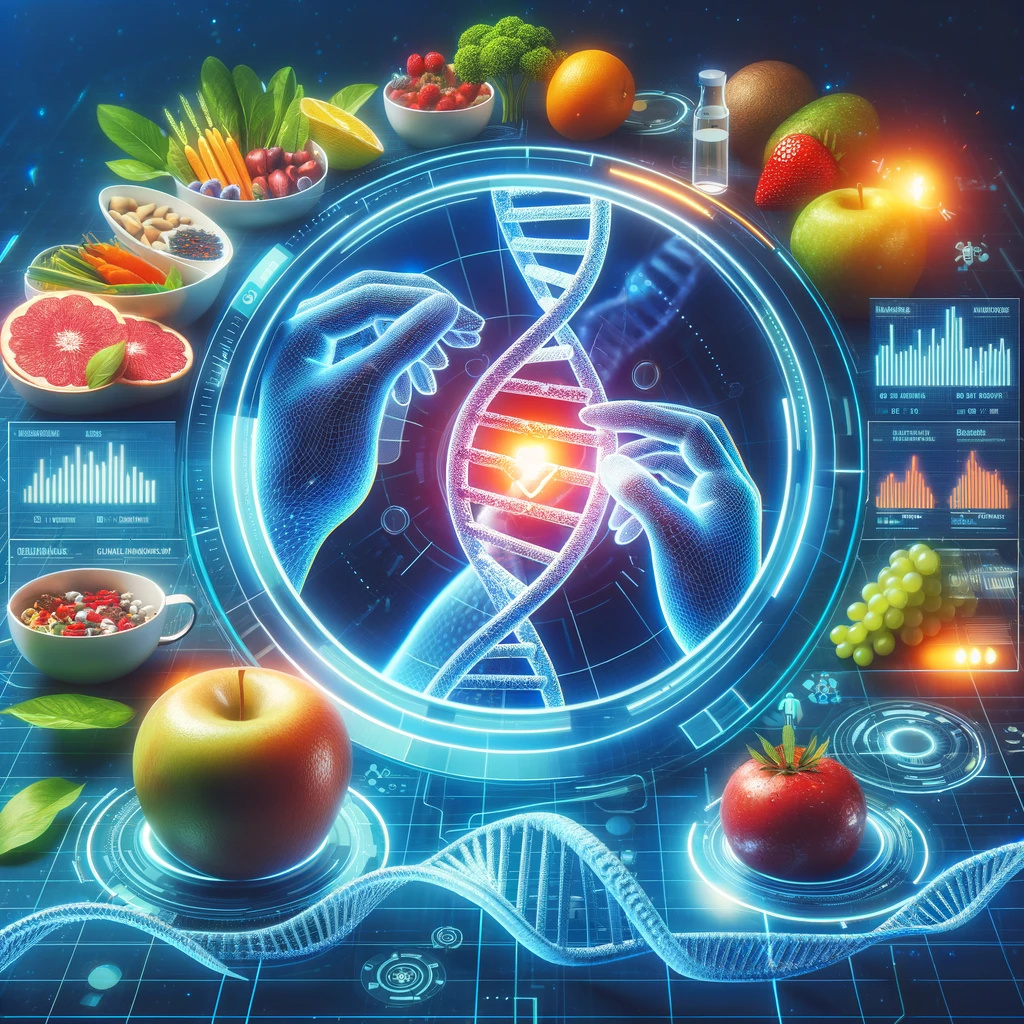
- Food recognition: These are tools that can use computer vision and machine learning to recognize and analyze the food you eat and provide you with information such as calories, nutrients, and portions. For example, Foodvisor is an app that can scan your plate, give you a detailed breakdown of your meal, and help you manage your calorie intake and nutrition.
- Meal planning: These are tools that can use natural language processing and machine learning to generate and optimize your meal plans and provide you with recipes, shopping lists, and cooking instructions. For example, Eat This Much is an app that can create personalized meal plans based on your calorie goals, dietary preferences, and budget and help you stick to your diet.
- Nutrition analysis: These are tools that can use data mining and machine learning to evaluate and improve your nutrition and diet and provide you with recommendations and interventions. For example, Neutrino is an app that can analyze your food intake, biomarkers, and genetic profile, provide you with personalized nutrition insights and suggestions, and help you optimize your health and weight.
- Dietary feedback: These are tools that can use natural language processing and machine learning to communicate with you and provide you with feedback and support on your nutrition and diet. For example, Lark is a chatbot that can act as your personal health coach and help you with your diet, nutrition, and lifestyle.
AI can have various benefits for your nutrition and diet for weight management, such as:
- Convenience: AI can provide you with easy and accessible solutions that can fit your schedule, budget, and lifestyle. You can use AI anytime, anywhere, and on any device to get instant and accurate information and guidance.
- Customization: AI can provide you with tailored and personalized solutions that can match your individual needs, preferences, and goals. You can use AI to find the best nutrition and diet for you and avoid generic or one-size-fits-all approaches.
- Effectiveness: AI can provide you with data-driven and evidence-based solutions that can improve your results and outcomes. You can use AI to optimize your nutrition and diet for weight management and achieve your goals faster and easier.
Research has shown that AI can have positive effects on your nutrition and diet for weight management, such as:
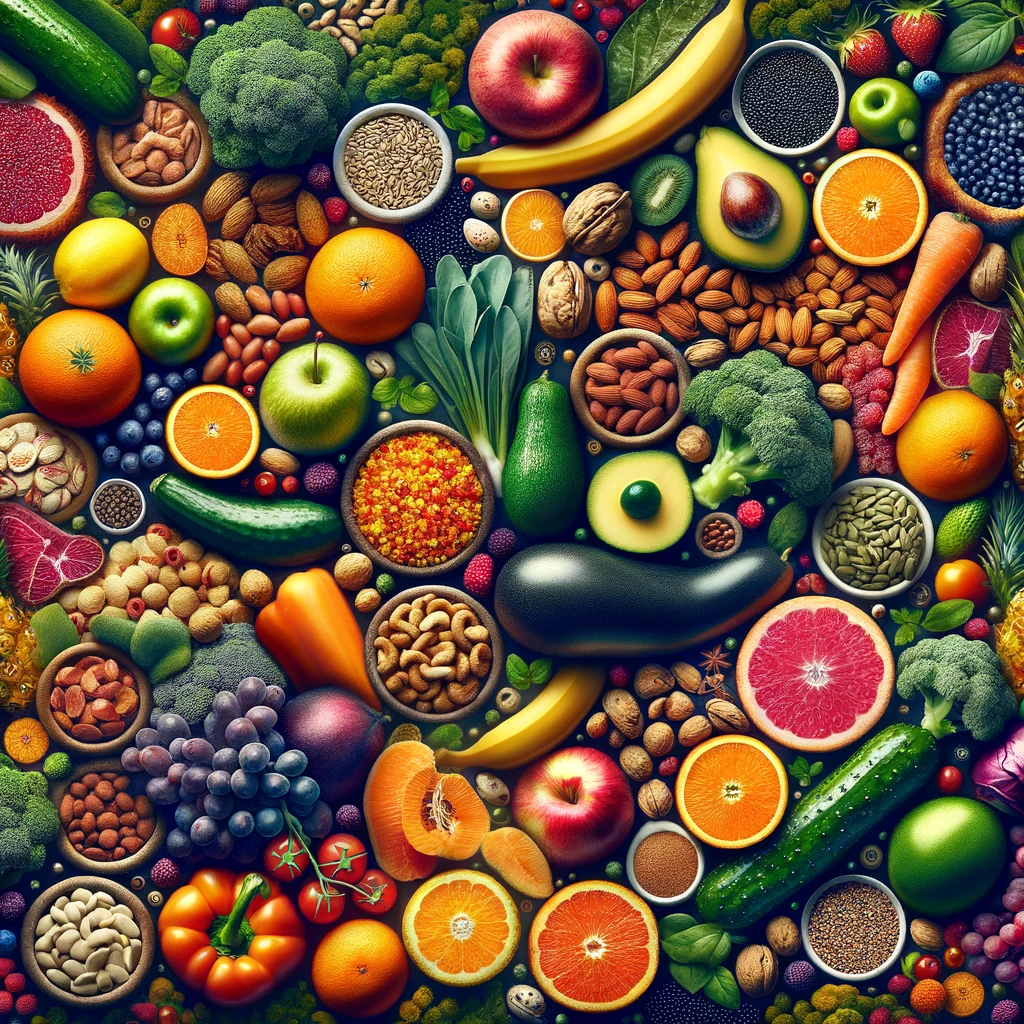
- Improving your calorie intake and expenditure and creating a calorie deficit, which is essential for weight loss,
- Improving your nutrient intake and balance and preventing nutrient deficiencies or excesses, which are important for health,
- Improving your dietary quality and diversity and preventing dietary monotony or boredom, which are important for satisfaction,
- Improving your dietary adherence and compliance and preventing dietary relapse or dropout, which are important for sustainability
Therefore, AI can be a powerful ally in enhancing your nutrition and diet for weight management and helping you achieve and maintain a healthy weight that benefits your physical, mental, and environmental health.
How AI Can Incorporate Exercise and Lifestyle Changes into Your Weight-Management Routine
Exercise and lifestyle changes are essential for weight management, as they can affect your calorie expenditure, fitness, and well-being. The amount and type of physical activity you do, as well as the habits you adopt, such as sleep, stress management, and hydration, can influence your weight loss and health outcomes. However, exercise and lifestyle changes are not easy to implement and maintain, as they can face various challenges and barriers, such as lack of time, motivation, or access to facilities. That’s why AI can be a helpful partner in incorporating exercise and lifestyle changes into your weight-management routine.
AI, or artificial intelligence, is the use of machines and algorithms to perform tasks that normally require human intelligence, such as learning, reasoning, and decision-making. AI can incorporate exercise and lifestyle changes into your weight-management routine by providing you with personalized, adaptive, and interactive solutions that can enhance your motivation, behavior, and outcomes. AI can analyze your data, such as your weight, body fat, fitness level, activity level, health status, and preferences, and provide you with customized feedback and recommendations on your exercise and lifestyle. AI can also help you monitor and track your exercise and lifestyle and provide you with real-time and long-term insights on your progress and outcomes.
Some examples of AI tools that can incorporate exercise and lifestyle changes into your weight-management routine are:
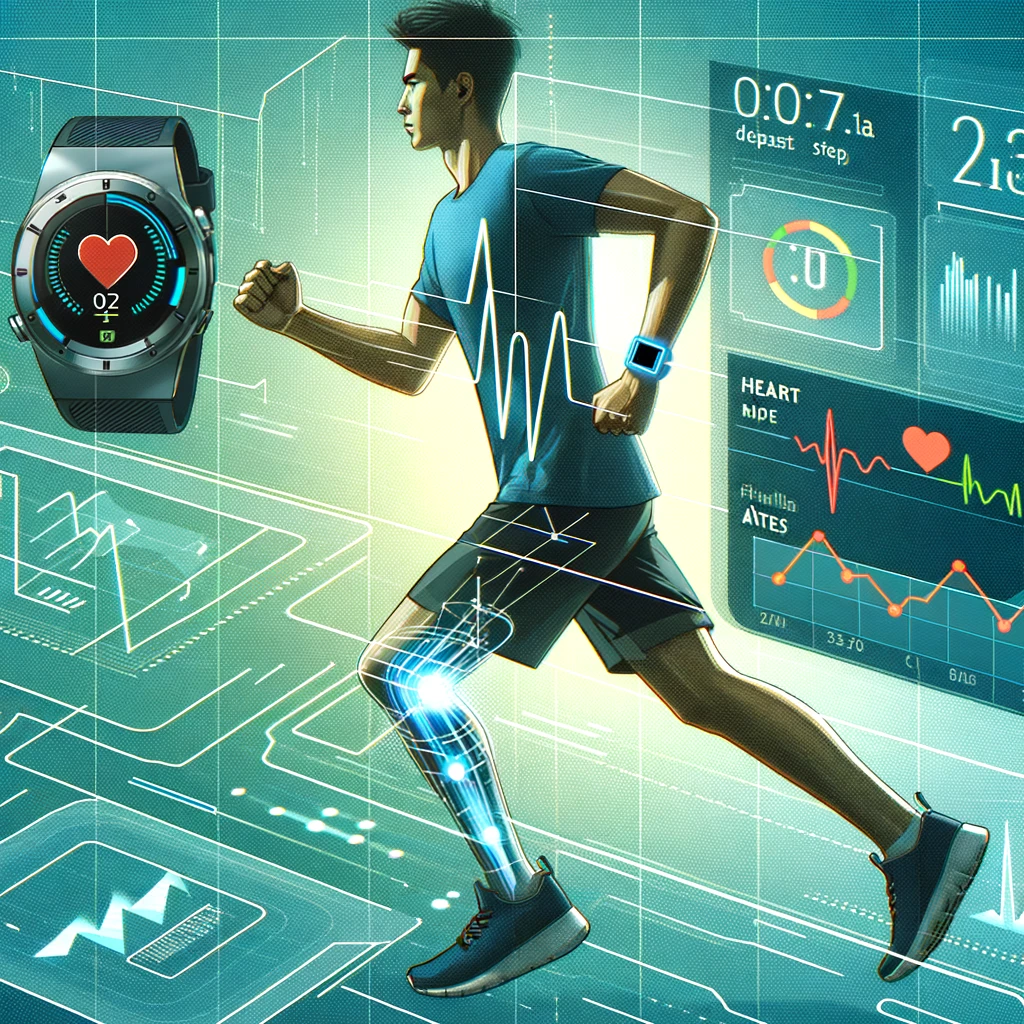
- Fitness tracking: These are tools that can use sensors, wearables, or smartphones to measure and record your physical activity, such as steps, calories, distance, speed, heart rate, and sleep. For example, Fitbit is a fitness tracker that can sync with your app and dashboard and help you monitor your activity, exercise, and health.
- Exercise guidance: These are tools that can use computer vision, speech recognition, or natural language processing to provide you with personalized, adaptive, and interactive feedback and guidance on your exercise, such as form, intensity, duration, and frequency. For example, Peloton is an exercise bike that can connect you with live and on-demand classes and provide you with real-time feedback and coaching on your performance and goals.
- Gamification: These are tools that can use game elements, such as points, badges, levels, rewards, and challenges, to make your exercise and lifestyle more fun, engaging, and motivating. For example, Zwift is a virtual cycling platform that can immerse you in a realistic and social gaming environment and provide you with various modes, routes, and events to challenge yourself and others.
- Social support: These are tools that can use social media, online communities, or chatbots to provide you with social support, such as encouragement, feedback, advice, and accountability. For example, Strava is a social network for athletes that can help you share your activities, join clubs, follow friends, and compete with others.
Artificial intelligence can have various benefits for your exercise and lifestyle changes for weight management, such as:
- Convenience: AI can provide you with easy and accessible solutions that can fit your schedule, budget, and lifestyle. You can use AI anytime, anywhere, and on any device to get instant and accurate information and guidance.
- Customization: AI can provide you with tailored and personalized solutions that can match your individual needs, preferences, and goals. You can use AI to find the best exercise and lifestyle for you and avoid generic or one-size-fits-all approaches.
- Effectiveness: AI can provide you with data-driven and evidence-based solutions that can improve your results and outcomes. You can use AI to optimize your exercise and lifestyle for weight management and achieve your goals faster and easier.
Research has shown that AI can have positive effects on your exercise and lifestyle changes for weight management, such as:
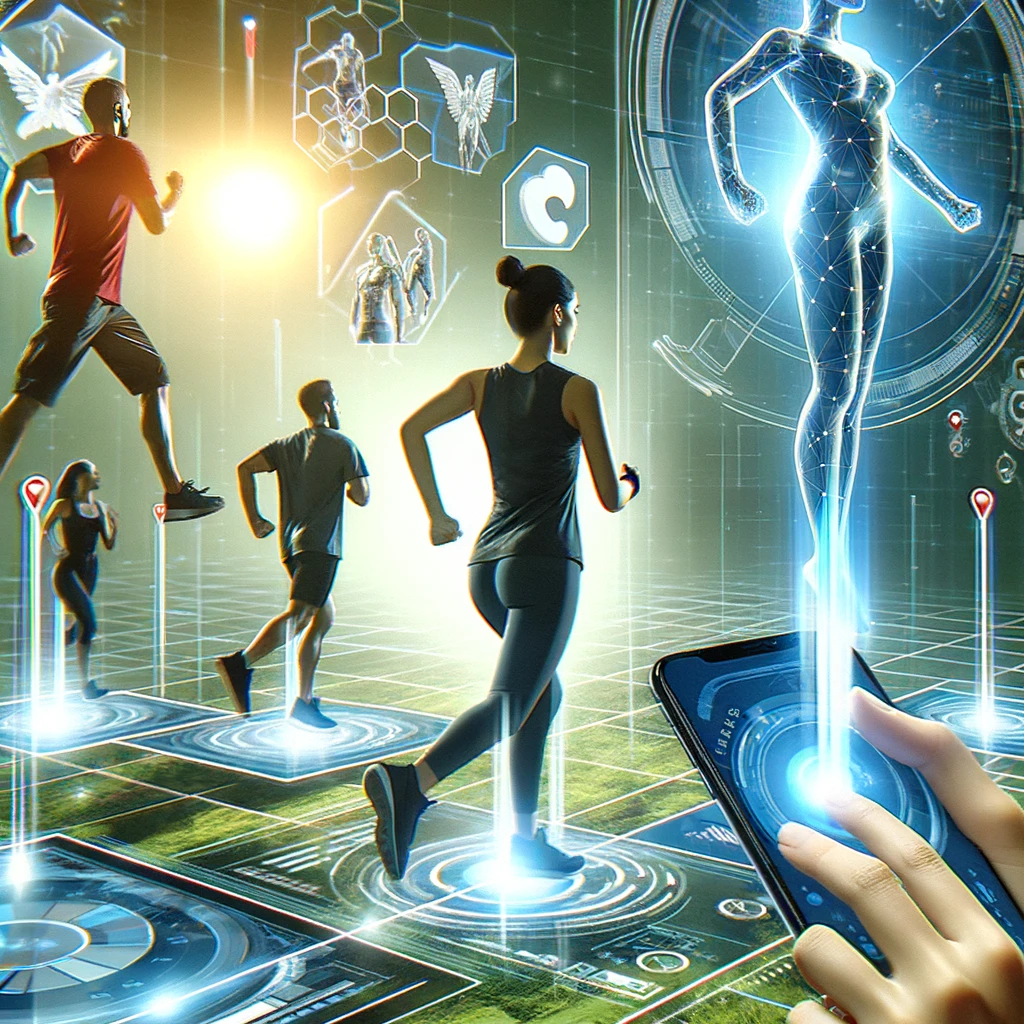
- Improving your calorie expenditure and creating a calorie deficit, which is essential for weight loss,
- Improving your fitness level and preventing muscle loss, which are important for health and metabolism,
- Improving your well-being and preventing stress, anxiety, and depression, which are important for happiness and motivation
- Improving your adherence and compliance and preventing relapse or dropout are important for sustainability
Therefore, artificial intelligence can be a helpful partner in incorporating exercise and lifestyle changes into your weight-management routine and helping you achieve and maintain a healthy weight that benefits your physical, mental, and environmental health.
How AI Can Adopt Mindful and Intermittent Eating Practices for Long-Term Weight Management.
Mindful and intermittent eating are two emerging trends in weight management that can help you achieve and maintain a healthy weight in a sustainable way. Mindful eating is the practice of paying attention to your food and your body’s signals, such as hunger, fullness, and satisfaction, while eating. Intermittent eating is the practice of alternating periods of eating and fasting, such as 16 hours of fasting and 8 hours of eating, or 24 hours of fasting and 24 hours of eating. Both practices can help you control your calorie intake, improve your metabolism, and enhance your health.
AI, or artificial intelligence, is the use of machines to perform tasks that normally require human intelligence, such as learning, reasoning, and decision-making. AI can adopt mindful and intermittent eating practices for long-term weight management by providing you with personalized, adaptive, and interactive solutions that can enhance your motivation, behavior, and outcomes. AI can analyze your data, such as your weight, body fat, blood pressure, blood sugar, and biomarkers, and provide you with customized feedback and recommendations on your mindful and intermittent eating. AI can also help you monitor and track your mindful and intermittent eating and provide you with real-time and long-term insights on your progress and outcomes.
Some examples of AI tools that can adopt mindful and intermittent eating practices for long-term weight management are:

- Self-monitoring: These are tools that can use sensors, wearables, or smartphones to measure and record your food intake, fasting periods, and body signals, such as hunger, fullness, and satisfaction. For example, Ate is an app that can help you track your mindful eating habits and provide you with visual and emotional feedback on your meals.
- Goal setting: These are tools that can use natural language processing and machine learning to help you set and achieve your mindful and intermittent eating goals and provide you with reminders, tips, and challenges. For example, Zero is an app that can help you set and track your fasting goals and provide you with timers, notifications, and articles on intermittent eating.
- Feedback: These are tools that can use natural language processing and machine learning to communicate with you and provide you with feedback and support on your mindful and intermittent eating. For example, Noom is a virtual coach that can help you with your weight management and provide you with daily lessons, tips, and challenges on mindful and intermittent eating.
AI can have various benefits for your mindful and intermittent eating for long-term weight management, such as:
- Convenience: AI can provide you with easy and accessible solutions that can fit your schedule, budget, and lifestyle. You can use AI anytime, anywhere, and on any device to get instant and accurate information and guidance.
- Customization: AI can provide you with tailored and personalized solutions that can match your individual needs, preferences, and goals. You can use AI to find the best mindful and intermittent eating practices for you and avoid generic or one-size-fits-all approaches.
- Effectiveness: AI can provide you with data-driven and evidence-based solutions that can improve your results and outcomes. You can use AI to optimize your mindful and intermittent eating for weight management and achieve your goals faster and easier.
Research has shown that AI can have positive effects on your mindful and intermittent eating for long-term weight management, such as:
- Improving your calorie intake and expenditure and creating a calorie deficit, which is essential for weight loss,
- Improving your metabolism and hormonal balance and preventing insulin resistance and inflammation, which are important for health,
- Improving your eating behavior and satisfaction and preventing overeating and binge eating are important for happiness and motivation
- Improving your weight maintenance and prevention of weight gain, which are important for sustainability,
Therefore, AI can be a helpful partner in adopting mindful and intermittent eating practices for long-term weight management and helping you achieve and maintain a healthy weight that benefits your physical, mental, and environmental health.
Conclusion
In this post, you have learned how AI is revolutionizing weight management by providing personalized, adaptive, and interactive solutions that can help you achieve your weight goals. You have discovered how AI can help you with:
- Nutrition and diet: by providing customized, data-driven, and evidence-based recommendations that can suit your needs, preferences, and goals
- Exercise and lifestyle changes: by providing personalized, adaptive, and interactive solutions that can enhance your motivation, behavior, and outcomes
- Mindful and intermittent eating: by providing personalized, adaptive, and interactive solutions that can enhance your motivation, behavior, and outcomes
We hope this post has inspired you to take action and start your weight-management journey with the help of AI.